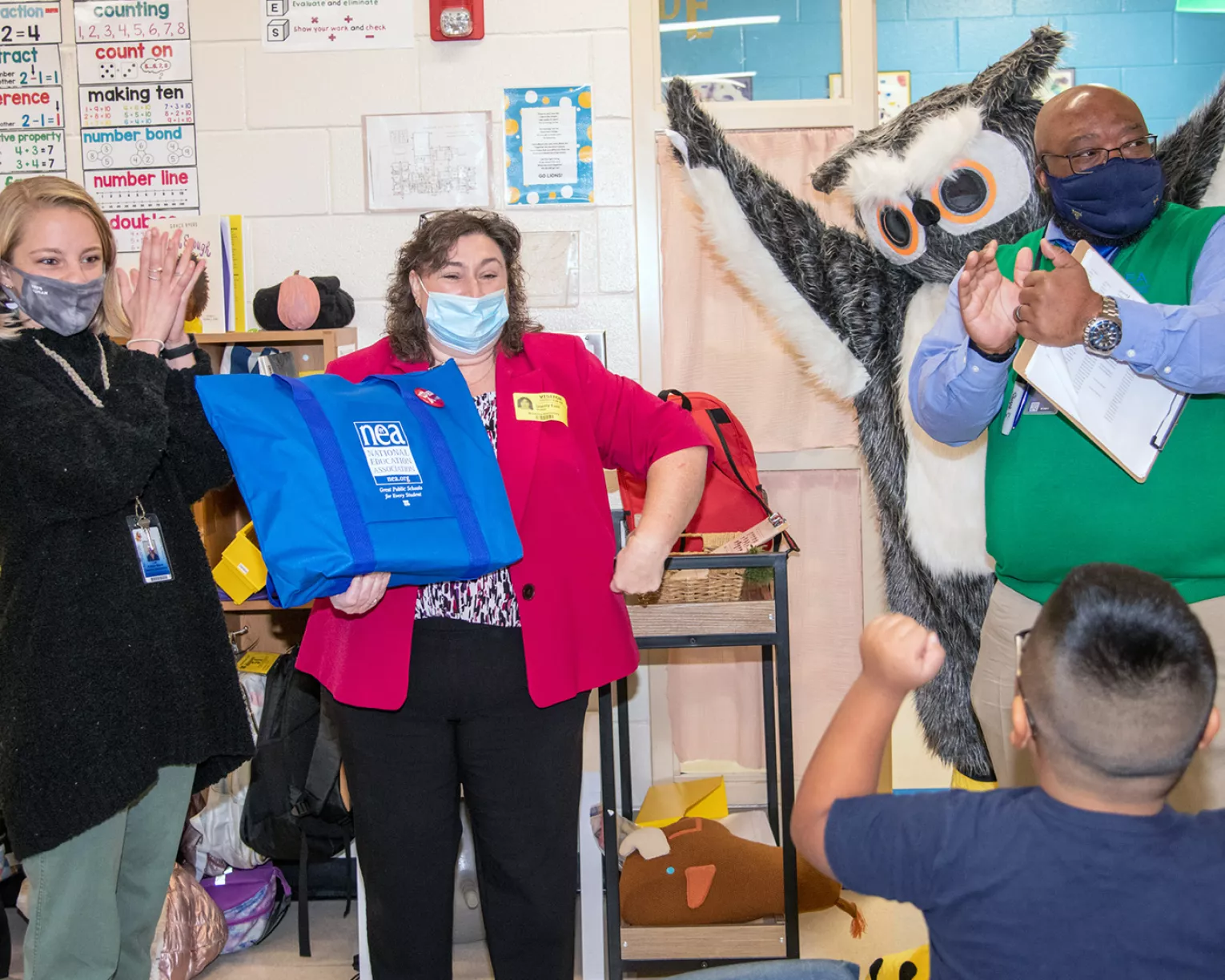Diverse voices, personalities and cultures are what make learning exciting at any grade level.
There are ways to protect this experience for all students — no matter their race, gender or need — and it can start with taking action in your child’s school.
As an advocate, it is important to help your child or other families in their classroom come together to overcome challenges when it comes to discrimination in a school or education system. There are many ways to accomplish this — writing to your local government officials or participating on the school board.
All students, including your child, have the right to be treated with respect and deserve an equal access to a quality education.
You can also take action with the National Education Association. At NEA, we support advocacy by engaging and mobilizing activists in the fight for racial, social and economic justice in public education through our NEA EdJustice initiative. The mission is to:
- Highlight member voices on equality and offer resources and tools for activism
- Build and grow a community of activists committed to advancing equal rights in public education
- Connect and engage education activists to support opportunities for all students
NEA EdJustice focuses on the following key issues that help us to deliver on our charge:
- Bully-Free: Shockingly, a student gets bullied every seven minutes, and bullying isn’t always handled properly. Students need people to speak up on their behalf and protect them when their safety is being threatened.
- English Language Learners: Many educators are not trained to meet the needs of English Language Learners (ELL) and are not aware of how to deal with them. Because of the language barrier, many ELL students are underserved.
- Immigration: Students have the right to learn without being concerned about the impact of unfair immigration policies on their education. Educators support commonsense immigration reforms that include addressing the students who were brought to this country by their parents, preserving family unity and creating a realistic path to citizenship.
- LGBTQ: LGTBQ students are at high risk of being harassed or bullied in school. This can lead to declines in performance, dropping out, and even homelessness.
- Voting Rights: In order for democracy to continue thriving, it requires participation from all of us. Unfortunately, states have passed laws that make it hard for some Americans, including students, to exercise their right to vote.
- Opportunity: Learning belongs to educators, students and parents. Having access to a great education should not be limited by zip code, charter lotteries or the affordability of private schools.
- Racial Justice: While the education system is intended to provide equal opportunity to all students, it often fails to do so. In order for all students to gain a fair access to education, people need to stand up to fight institutionalized racism.
- Ending the School-to-Prison Pipeline: Unrealistic discipline policies are influencing the ability for some students to continue their education. The “school-to-prison” pipeline demonstrates the unfortunate correlation between the gap in education and incarceration rates. Educators can use positive approaches to discipline to change this narrative.
How You Can Get Involved
All students, including your child, have the right to be treated with respect and deserve an equal access to a quality education. Talk to your child about these important issues and let them know that you are there to support them along the way should they ever experience harassment or discrimination.
You can also protect other students by standing up for their rights and advocating for educators, students, families and communities. Learn more about ways to get involved with NEA EdJustice here.
Use Your Educator Voice.
